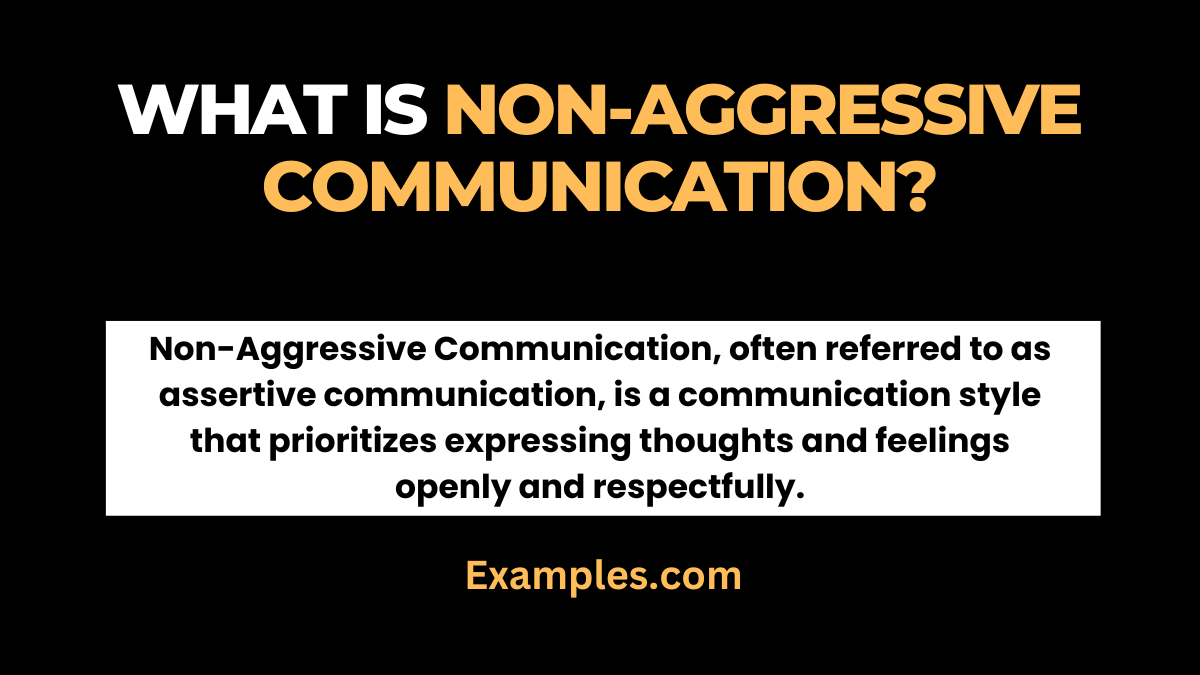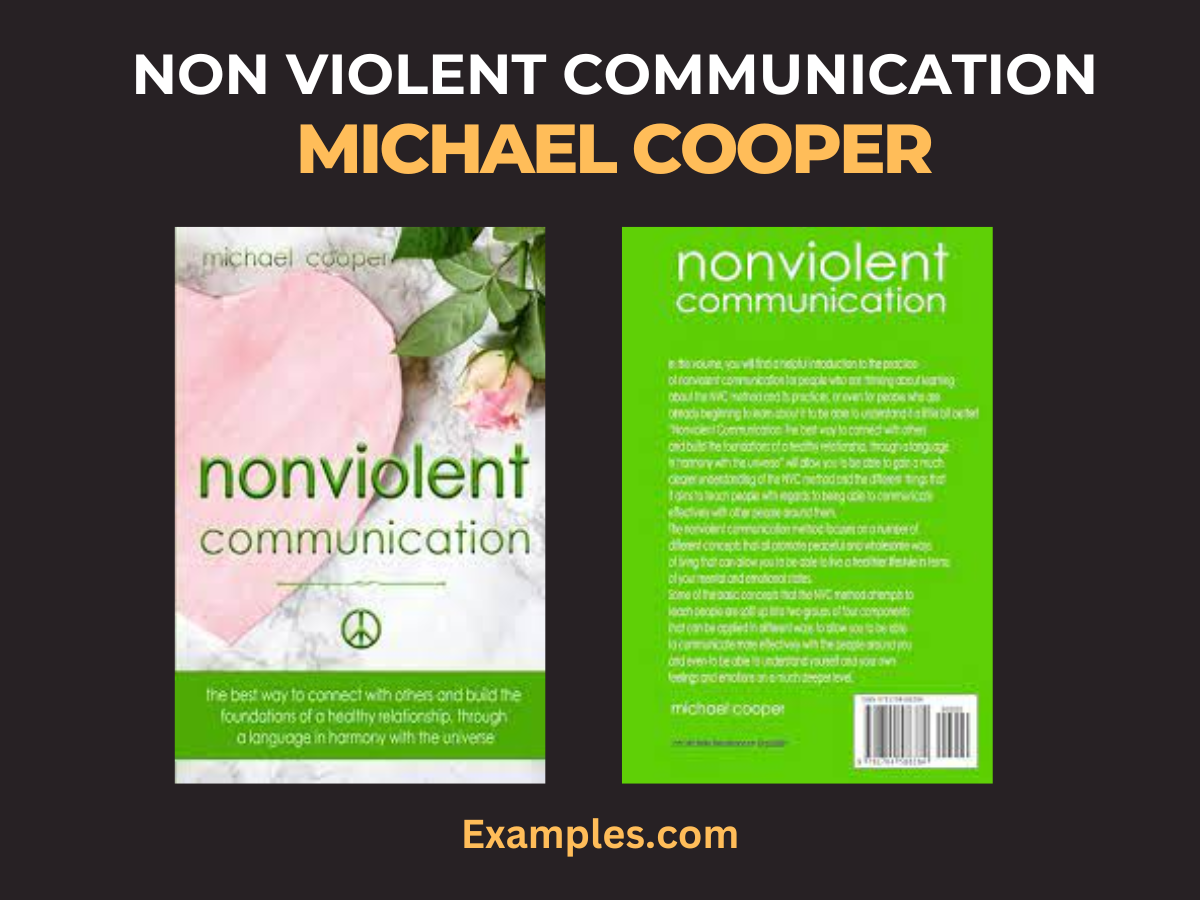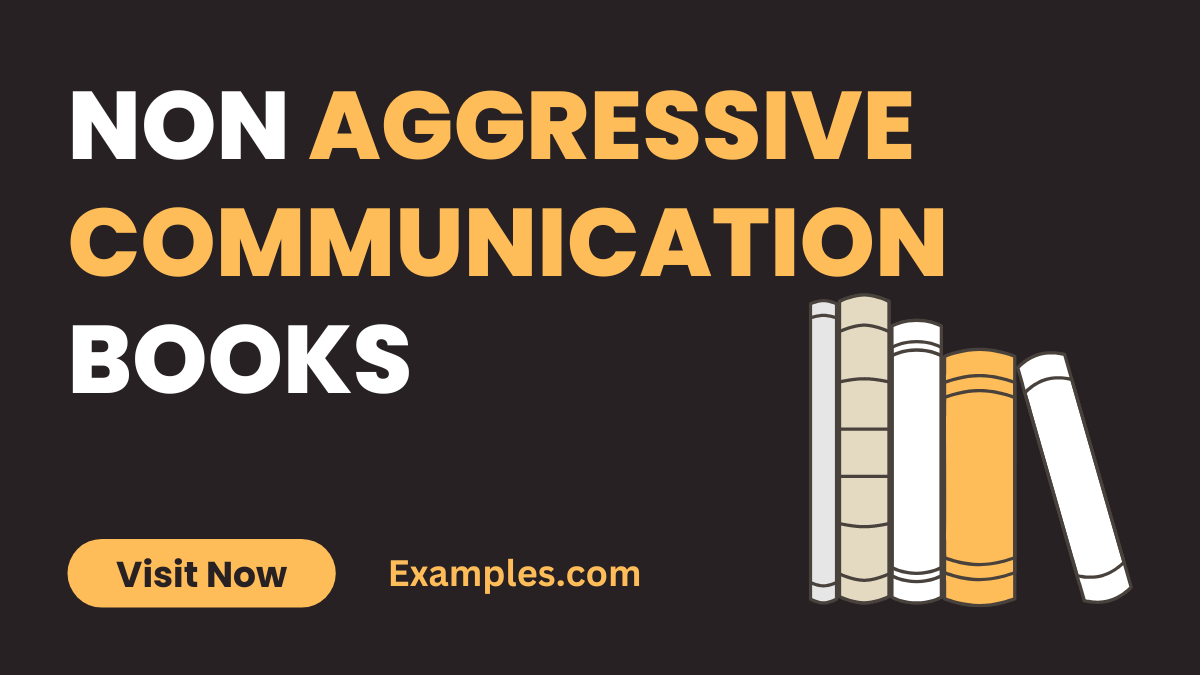10+ Non Aggressive Communication Books
Welcome to the comprehensive guide on Non-Aggressive Communication Books, your key to fostering healthy connections and effective dialogues. In this detailed exploration, we delve into Non-Aggressive Communication Examples, providing valuable insights, practical tips, and a curated list of books to refine your communication skills. Uncover the power of assertive yet respectful interaction, enhancing your ability to convey thoughts and feelings seamlessly. Elevate your communication prowess with our carefully crafted guide—your gateway to transformative and non-aggressive communication.
What is Non-Aggressive Communication?

Non-Aggressive Communication, often referred to as assertive communication, is a communication style that prioritizes expressing thoughts and feelings openly and respectfully. Unlike aggressive or passive approaches, non-aggressive communication aims for a balance between self-advocacy and consideration for others. It involves clear expression of needs, active listening, and conflict resolution without hostility. This approach fosters positive interactions, contributing to healthier relationships and effective communication in various personal and professional contexts.
Non-Violent Communication: The Art of Harmony in Relationships
In the realm of interpersonal dynamics, Non-Violent Communication (NVC) emerges as a beacon, illuminating the path to healthier relationships and effective understanding. This comprehensive guide explores the profound philosophy advocated by Michael Cooper, revealing how NVC serves as a language in harmony with the universe.

Understanding Non-Violent Communication (NVC)
Non-Violent Communication, pioneered by Michael Cooper, is a communication framework designed to transform conflicts into opportunities for connection and understanding. At its core, NVC emphasizes empathy, authentic expression, and collaborative problem-solving.
The Four Components of NVC
- Observation: The practice begins with objective observation, free from judgment. By focusing on observable behaviours, NVC encourages a shared understanding of situations.
- Feeling: Identifying and expressing emotions form a crucial aspect. NVC encourages individuals to recognize and articulate their feelings, fostering emotional intelligence.
- Need: Central to NVC is the acknowledgment of universal human needs. By understanding shared needs, individuals can collaborate to find mutually beneficial solutions.
- Request: The framework concludes with making clear, actionable requests. NVC empowers individuals to express their needs without demanding compliance.
Applying NVC in Relationships
Discover how NVC serves as a catalyst for harmonious connections. Learn to navigate conversations with empathy, create an atmosphere of trust, and build the foundations of a healthy relationship through language aligned with the universe.
Michael Cooper’s Contribution
Explore Michael Cooper’s insights into Non-Violent Communication, understanding the profound impact of his teachings on personal and professional relationships. Dive into practical examples and real-life applications, illustrating the transformative power of NVC in everyday interactions.
Benefits of Embracing NVC
- Improved Communication: NVC enhances the quality of communication, fostering openness and understanding.
- Conflict Resolution: Learn how to navigate conflicts constructively, transforming them into opportunities for growth.
- Building Empathy: Develop a deeper sense of empathy, creating connections that go beyond surface-level interactions.
- Strengthening Relationships: By aligning language with the principles of NVC, relationships flourish, grounded in authenticity and mutual respect.
Nonviolent Communication: A Language of Life Marshall B. Rosenberg
Nonviolent Communication: A Language of Life Marshall B. Rosenberg
“Nonviolent Communication” by Marshall B. Rosenberg is a seminal work that introduces the concept of compassionate communication. The book provides a framework for expressing needs and resolving conflicts without resorting to aggression.
- Empathy and Understanding: Learn how to cultivate empathy and understand the emotions underlying communication.
- Four-Step Process: Discover the four-step process of observation, feeling, needs, and requests for effective communication.
Author’s Perspective:
Marshall B. Rosenberg, a renowned psychologist, shares insights garnered from years of experience in conflict resolution and peace-making. His approach focuses on creating connections and understanding through language.
Arun Gandhi’s Foreword
- Role of Arun Gandhi:
Arun Gandhi, in the foreword, provides a unique perspective on non-aggressive communication. As the grandson of Mahatma Gandhi, he shares practical wisdom and insights inherited from a legacy of peaceful communication. - Gandhi’s Influence:
Explore how Arun Gandhi’s connection to his grandfather’s principles enriches the narrative, emphasizing the transformative power of nonviolent communication in our personal and societal interactions.
How These Books Transform Communication:
- Practical Application:
Discover practical applications of non-aggressive communication in real-life scenarios, from personal relationships to professional settings. - Building Emotional Intelligence:
Learn how these books contribute to the development of emotional intelligence, enhancing your ability to navigate complex emotions in communication. - Creating Lasting Connections:
Explore how embracing non-aggressive communication principles can lead to lasting connections, reducing conflicts and promoting understanding.
You can buy this Book from https://www.amazon.com/Nonviolent-Communication-Language-Life-Changing-Relationships/dp/189200528X
Nonviolent Communication: Techniques To Improve Your Communication by Will Jacob
Dive into the transformative world of nonviolent communication with Will Jacob
Nonviolent Communication: Techniques To Improve Your Communication by Will Jacob
Dive into the transformative world of nonviolent communication with Will Jacob’s insightful guide. This book offers a comprehensive exploration of techniques designed to elevate your communication skills, nurturing healthier relationships and boosting overall happiness. Discover practical strategies for expressing needs, active listening, and resolving conflicts without aggression. Will Jacob’s expertise unfolds, providing a roadmap to more meaningful connections through non-aggressive communication.
Unveiling the Essence of Nonviolent Communication
Explore the profound impact of nonviolent communication on relationships and personal well-being with Will Jacob’s illuminating book. Delve into practical techniques that empower you to express yourself assertively yet compassionately. Navigate the intricacies of active listening and conflict resolution, fostering a communication style that builds understanding and connection. Will Jacob’s insights offer a valuable resource for anyone seeking to enhance their communication skills and cultivate more harmonious relationships.
Elevating Happiness through Nonviolent Communication
Will Jacob’s guide goes beyond conventional communication methods, introducing you to a pathway that not only improves your interactions but also increases your overall happiness. Uncover the art of expressing needs without aggression and fostering empathy in your communication. This book is a valuable companion for those on a journey to transform their communication style, enriching relationships, and embracing a more joyful and fulfilling life. Will Jacob provides actionable guidance for anyone aspiring to communicate with clarity, kindness, and non-aggression.
Decolonizing Non-Violent Communication Second Edition
Embark on a transformative journey with the second edition of “Decolonizing Non-Violent Communication.” This comprehensive guide explores the principles of non-aggressive communication with a fresh perspective, focusing on decolonization and inclusivity. Dive into:
- Understanding Non-Aggressive Communication
Unpack the essence of non-aggressive communication, delving into its principles and how they contribute to effective dialogue and conflict resolution. - Key Concepts Explored
Explore crucial concepts within non-aggressive communication, emphasizing respect, empathy, and assertiveness. Understand how these principles shape meaningful interactions. - Decolonizing Communication
Discover the intersection of non-aggressive communication and decolonization. Learn how to cultivate culturally sensitive and inclusive communication practices. - Practical Application
Gain insights into applying non-aggressive communication in real-life scenarios. From personal relationships to professional settings, discover practical tips for implementing these principles. - Updates and Enhancements
Explore what’s new in the second edition, including updated examples, case studies, and additional resources. Stay abreast of the latest insights in non-aggressive communication. - Reader’s Guide
Navigate through the book effectively with a reader’s guide, providing a roadmap for maximizing your learning experience.
In conclusion, this comprehensive guide on Non-Aggressive Communication Books offers a roadmap to enhance interpersonal connections. By exploring examples, practical tips, and curated book recommendations, readers can master the art of effective and harmonious communication. Elevate your communication skills, foster understanding, and build healthier relationships with the insights provided in this complete guide.



